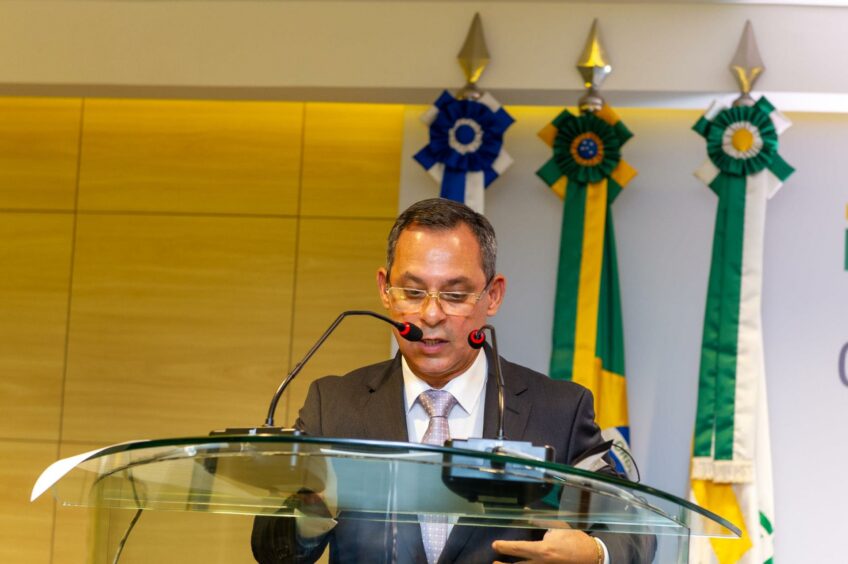
Petrobras has selected Jose Mauro Coelho to become the next chief executive officer of Latin America’s largest oil producer at a time high fuel prices have put it under political scrutiny.
Rio de Janeiro-based Petrobras swore in Coelho at a ceremony on Thursday, ending a tumultuous leadership transition. The event followed a Wednesday shareholders meeting where minority investors scored a victory by increasing their representation on the board to four members, up from three.
Petroleo Brasileiro, as the state-controlled oil producer is formally known, also elected Marcio Andrade Weber, a civil engineer from Rio Grande do Sul State University, as chairman. Weber previously worked at Petrobras and was already a board member.
Coelho will be taking control of Petrobras at a time high fuel prices have turned it into a political punching bag ahead of elections in October. He will be the third Petrobras CEO under President Jair Bolsonaro, who expects him to help diffuse public frustration over fuel prices.
At the ceremony, Coelho thanked Bolsonaro for trusting him to run the company and vowed to improve communication with Congress, which has been discussing subsidies and stabilization funds to reduce fuel prices. He also reinforced the company’s commitment to divestments and market-based fuel prices.
“Such a scenario leads to increased competition, with benefits for the Brazilian consumer,” he said.
Bolsonaro has said he wants someone at Petrobras who does a better job at communicating its fuel price policies than previous management. Petrobras tracks international prices while shielding consumers from short-term volatility.
He wasn’t Bolsonaro’s first choice. The far-right president had previously tapped a well-known energy consultant for the role, who wound up backing out due to potential conflicts of interest.
Coelho replaces Joaquim Silva e Luna, a general who had been sparring with Bolsonaro over high fuel prices and was pushed out of his job by the president. A stabilization in oil prices would make Coelho’s job easier.
“The fuel-price noise has diminished, and the main risk going forward is if oil prices keep climbing,” said Marcos Peixoto, a Sao Paulo-based portfolio manager at XP Asset Management. “All the names appointed by the government are technical and major changes are unlikely.”
Minority investors reelected Marcelo Gasparino and Marcelo Mesquita to the board. Billionaire banker Jose Joao Abdalla, one of Petrobras’s biggest shareholders, also got a seat, as well as governance expert and previous board member Francisco Petros.
As CEO, Coelho will need to navigate the conflicting priorities of Bolsonaro, who is concerned about the political fallout from $100 oil, and investors who want the company to continue charging market-based fuel prices and paying robust dividends. Investors also want the company to continue divesting billions of dollars in assets and focus on the giant pre-salt fields that deliver the most revenue.
Coelho’s previous two predecessors were fired amid public disputes with Bolsonaro over fuel prices. Luna has said he came under political pressure to contain gasoline and diesel prices leading up to his ouster. Petrobras has underperformed peers this year on concern that it would subsidize fuel. Shares are up 10% in Sao Paulo this year, trailing the benchmark Ibovespa index.
While Coelho has defended international fuel price parity in the past and is unlikely to change Petrobras’s current policy, it is unclear what will happen to the company after October elections. Bolsonaro has expressed frustration with international prices, and front-runner Luiz Inacio Lula da Silva, a former president, has been blaming Bolsonaro for pain at the pump and suggested the company charge below-market prices.
